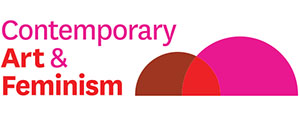Presented as part of the CARE : Transforming values through art, ethics and feminism Interdisciplinary symposium, a series of workshops and performances held at George Paton Gallery, and Union House, University of Melbourne, 30 October - 2 November, 2019.
Veronica Caven Aldous: You’ve Got A Mouth: Afternoon Tea Talking Circle
You’ve Got A Mouth: Afternoon Tea Talking Circle is a discussion circle where artists’ and participants read the writings of others. Participants are asked to prepare a 500-word statement, which will be read out loud on the day, by another participant. I have set up Talking Circles and Tea Tables in the past, to slow down the experience of viewing art and to engage with artists and the general public genuinely and slowly. One response I received from a public tea table event was that I was involved in the “aesthetics of care”. This session will build on this framework.
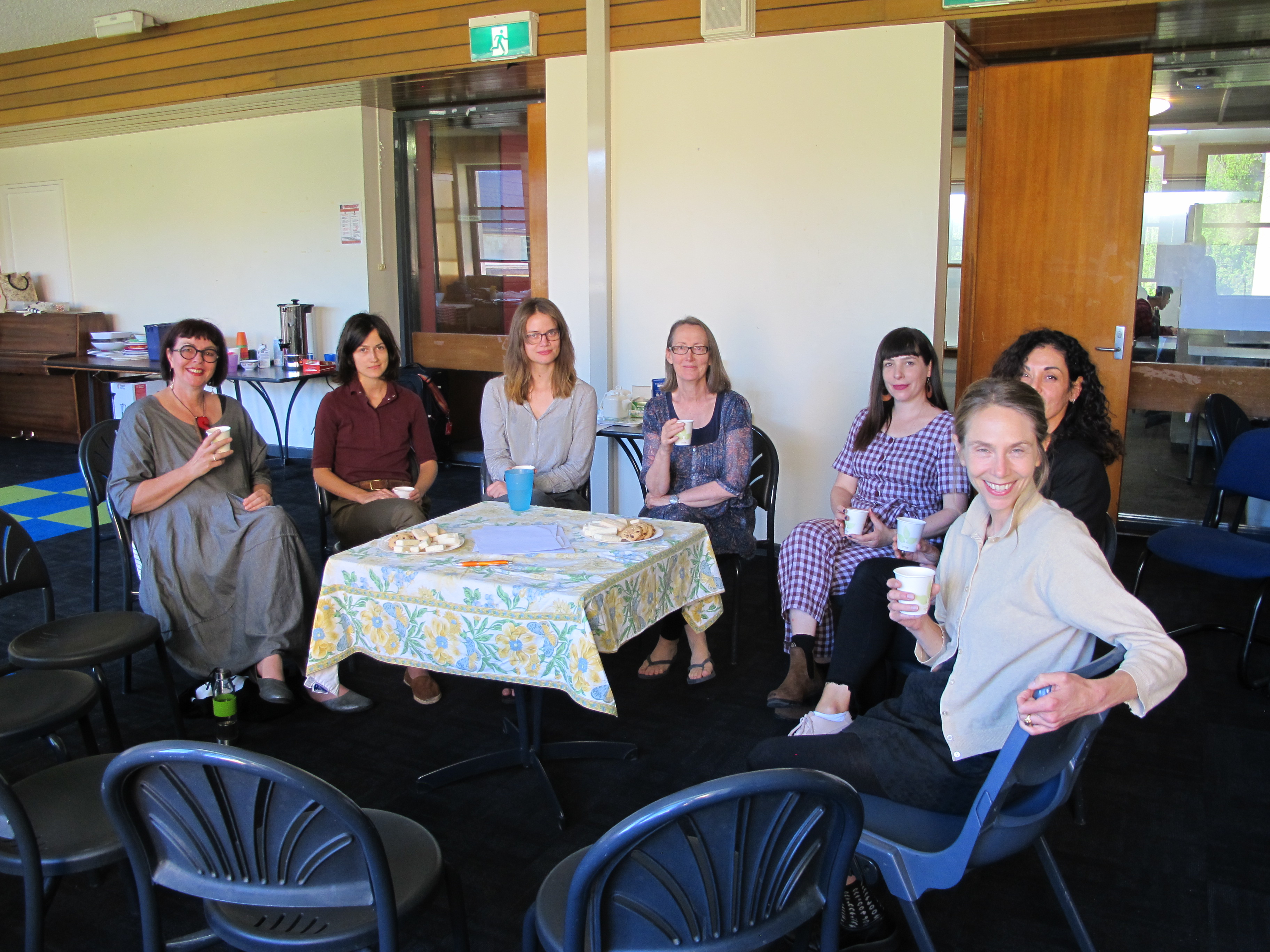
Catherine Bell: Facing Death Creatively
Facing Death Creatively is a communal workshop that uses craft materials and socially-engaged processes to promote healthy and meaningful discussions about our mortality. The workshop involves making a miniature vessel out of a soft, biodegradable, sculpting medium. The material is non-toxic, and very easy to manipulate so all ages and levels of dexterity can participate. The vessel becomes a portrait of the maker, and a catalyst for discussing the participant’s final resting place. The workshop was designed during a 2018 artist in residence at Centre For The Study Of Substructured Loss: Applied Grief and Bereavement Research in London and was delivered for the first time to over 300 delegates at an international conference on Art and Death held at St Christopher’s Hospice, UK.
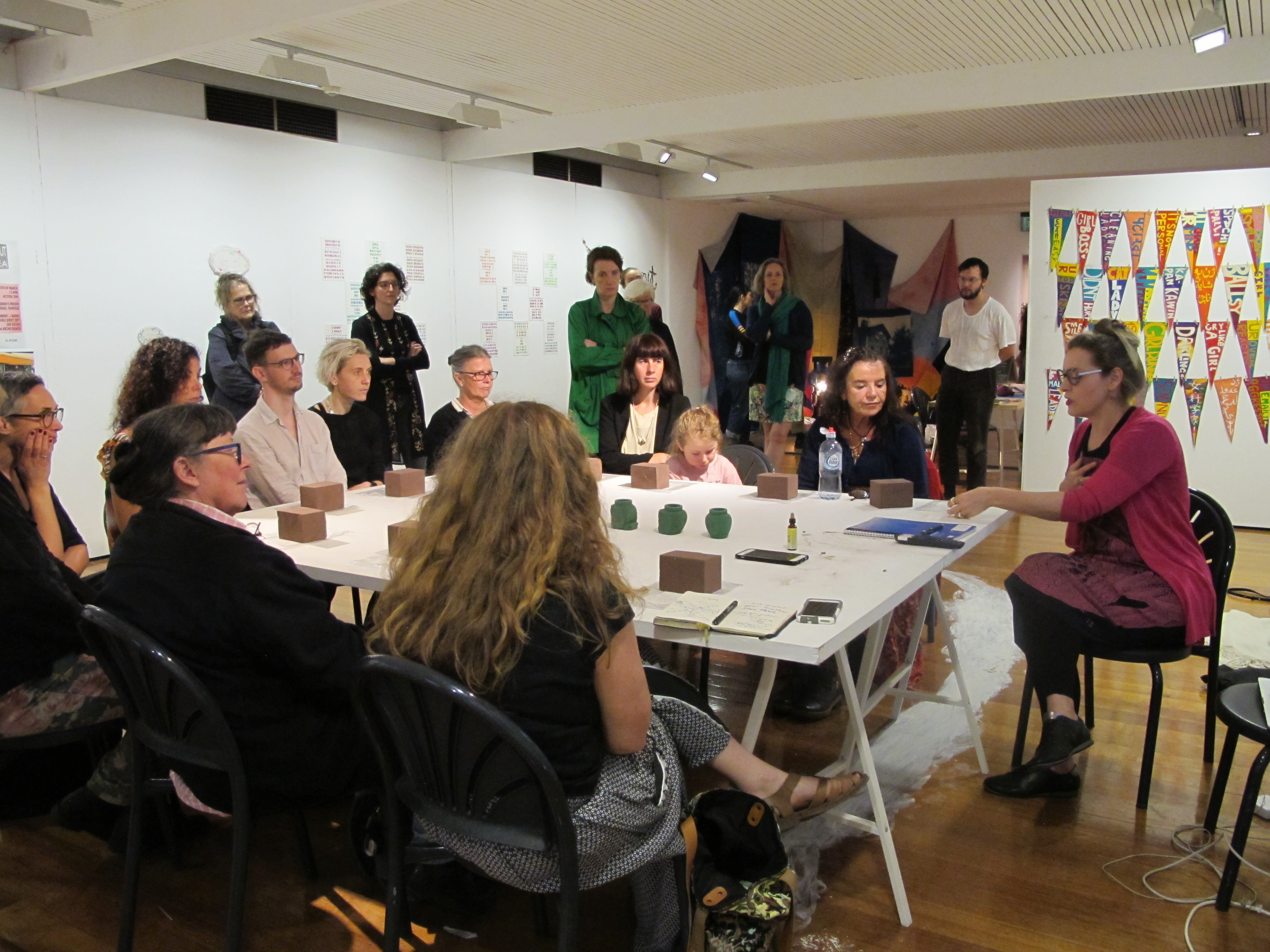
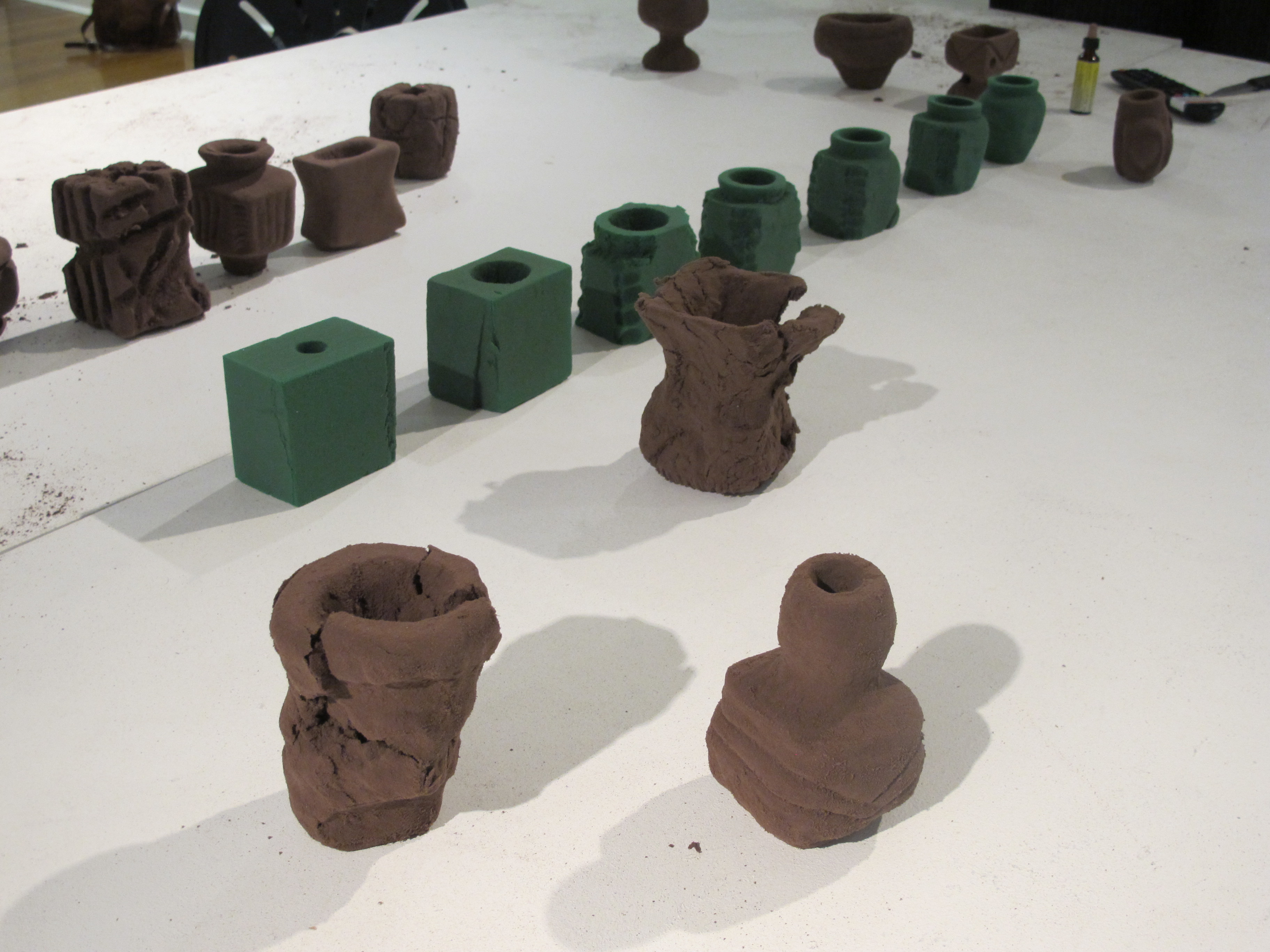
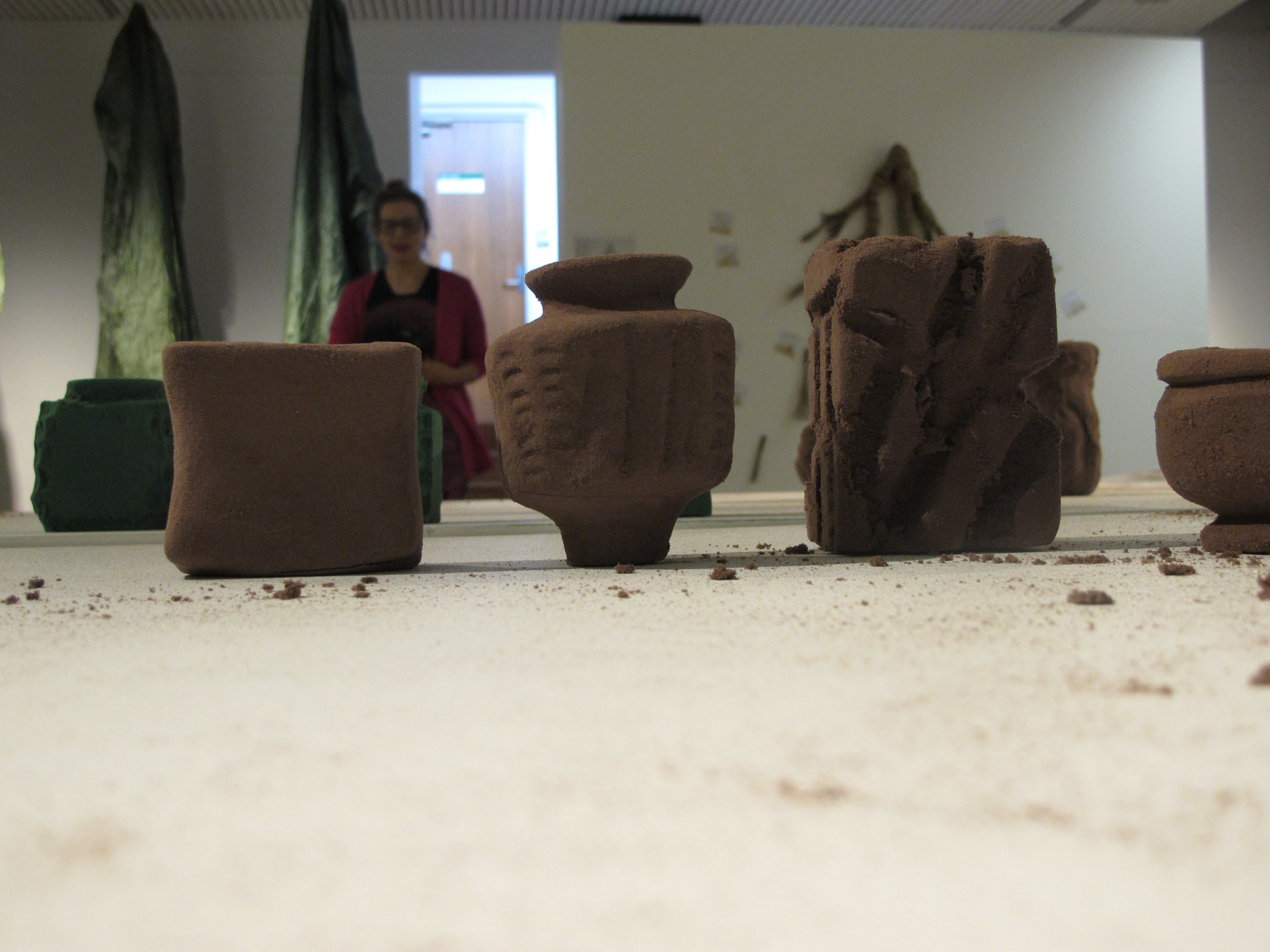
Luci Callipari-Marcuzzo: Tracing Threads of the Past: Collective Crochet
Utilising modes of narrative enquiry and autoethnography, my multidisciplinary arts practice-based research investigates, interprets and translates the experiences of Calabrian settlers to North West Victoria, Australia in a contemporary visual art and sociological context. Notions of belief and religious practices, gender roles and stereotypes, family relationships, nostalgia, memory and postmemory, cultural loss and preservation are also explored in my work. Through the methodology of live art performance and installation, my work attempts to actively engage with my familial and feminine history. An integral part of my practice-led research is the self-transformation into an imagined version of my Calabrian grandmothers. During these enactments, I make artefacts utilising traditional women’s modes of making – sewing, embroidery and crochet. The work is a manifestation of the hopes, dreams and desires of migrant women and strives to honour their voices which were often silenced by the dominant gender roles within the Calabrian diaspora. The Oxford dictionary lists Chain stitch as an embroidery or crochet stitch resembling a chain. Tracing threads of the past: Collective Crochet is a communal live art group performance, which invites people to crochet chains of red embroidery thread, a symbol of the chain migration scheme which many migrants, (North West Victoria especially) were participants. The collective gesture through the action of making chains of crochet in a communal setting, reflects on the human experience of movement and migration, and interprets the hand-crafted artefacts into transcultural exchanges of giving and receiving, sharing and caring about each other’s interwoven stories of departure and arrival.
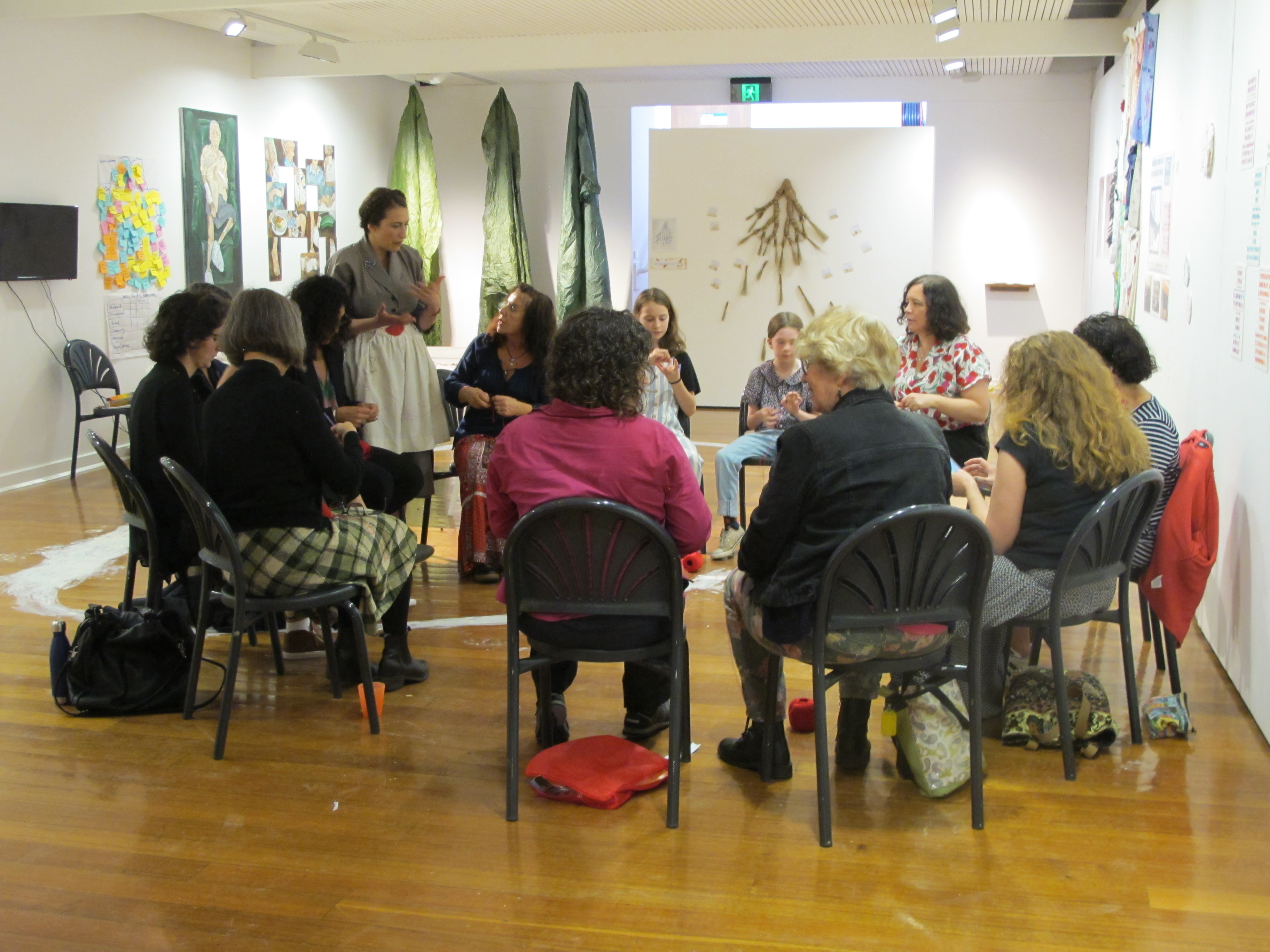
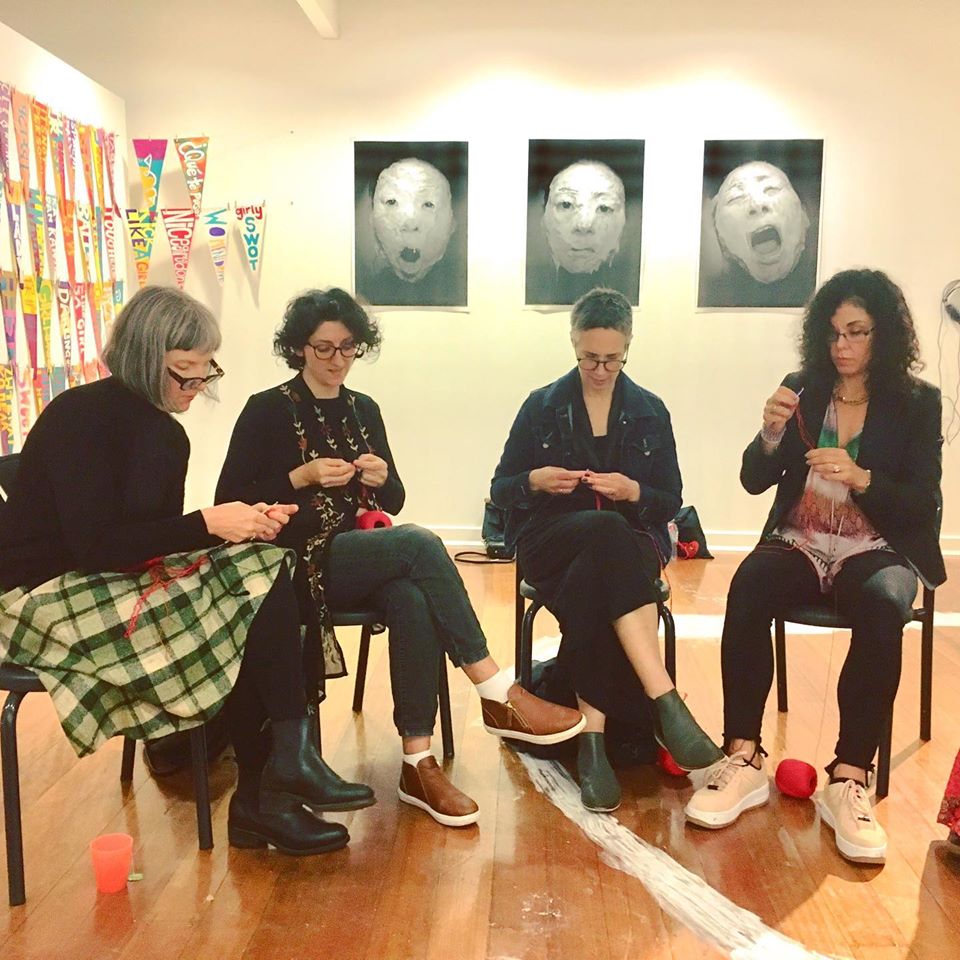
Favour Economy Hub: with Claire Field & Tonié Field
FavourEconomy is a collection of audio recordings shared by womxn who work in the artist. The project operates as a platform for contributors to voice their experience, insights and skills and share it to the archive. The archive is comprised of a series of volumes that develop over a one-year period coinciding with each financial year. FavourEconomy operates as an audio gift economy, where each contributor has determined the content and value of their recording set in accordance with their own experiences, and is received by the listener according to their current situation and need. The online open platform concurrently acts to give power and value to the femxle voice, which is too often silenced. FavourEconomy is an ongoing collaborative project currently led by Stella Chen, Claire field and Tonié Field. The conceptual framework was initially developed in 2015 by Claire Field, Alexandra Pedley and Bronwyn Treacy.

Claire Field and Caroline Phillips: Archiving Care
Feminist philosopher Virginia Held (2006) argues that the central focus of care “is on the compelling moral salience of attending to and meeting the needs of the particular others for whom we take responsibility.” Joan Tronto writes of the four ethical elements of care as “attentive, responsible, responsive, and iterative.” Alongside these ideas, the artists take heed of the framework developed by The Information Maintainers in Information Maintenance as a Practice of Care, who argue “Power inheres in the acts of identifying, classifying, and ordering information. People who are privileged to define information of importance and dictate how it is organized and shared have disproportionate influence on the shape and dynamics of society.” Archiving Care is a participatory, process-based sculptural work led by artists Claire Field and Caroline Phillips. In this work, participants are invited to consider what they have recently actively cared for and participate in building a growing archive of keepsakes, that materialises an archive of care. Archiving Care is an aesthetic and process-based response to these ideas, that connects the artists’ interests and practices of archiving the stories and histories of women’s art - Claire through FavourEconomy, and Caroline through the Women’s Art Register - and amplifies the practice of archiving as a practice of care.
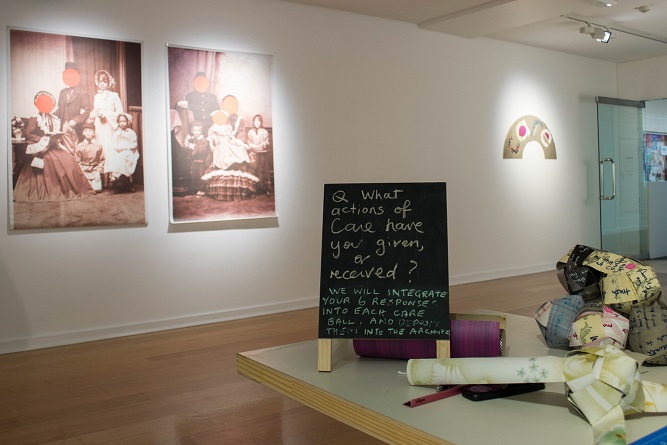
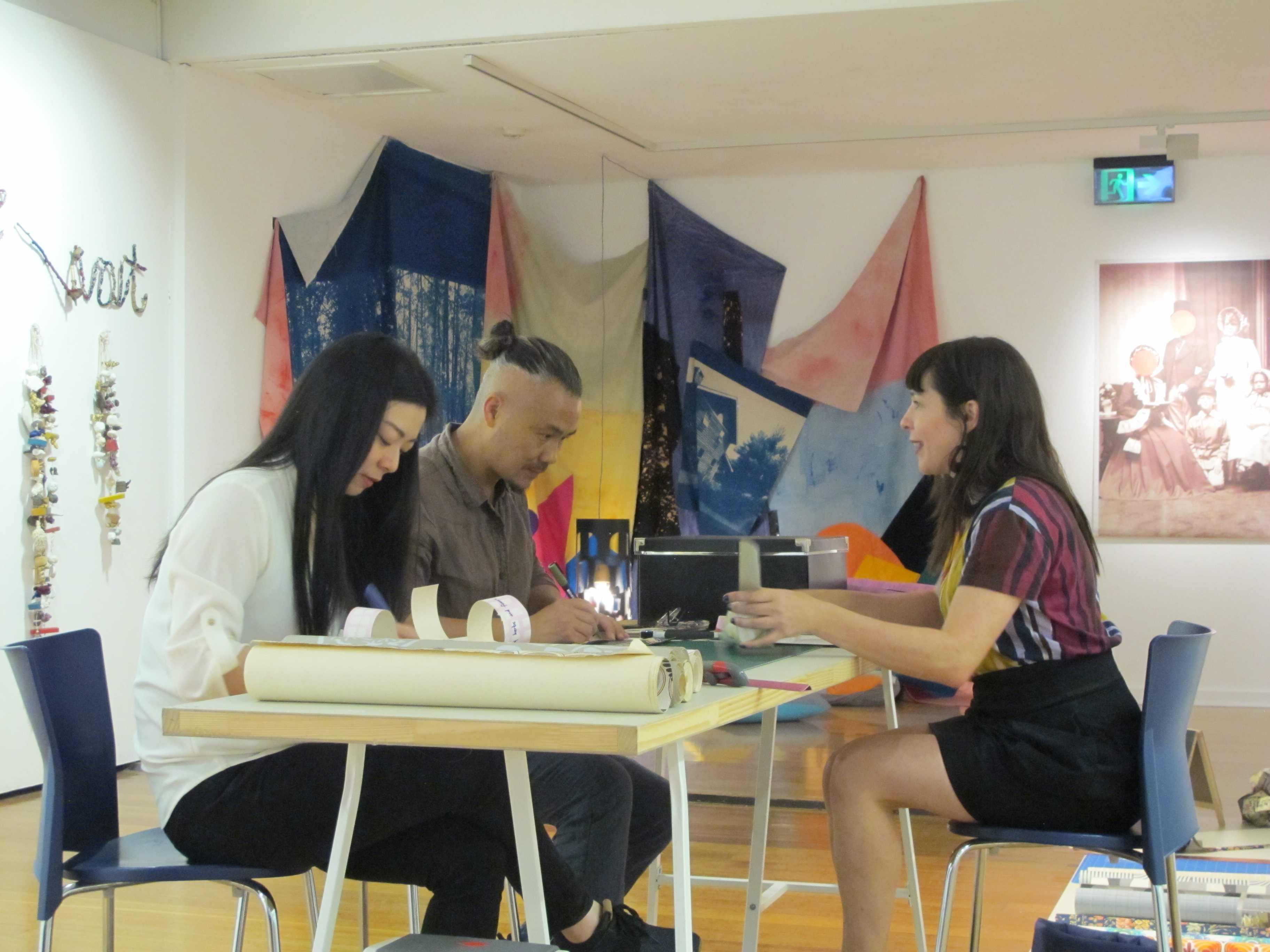
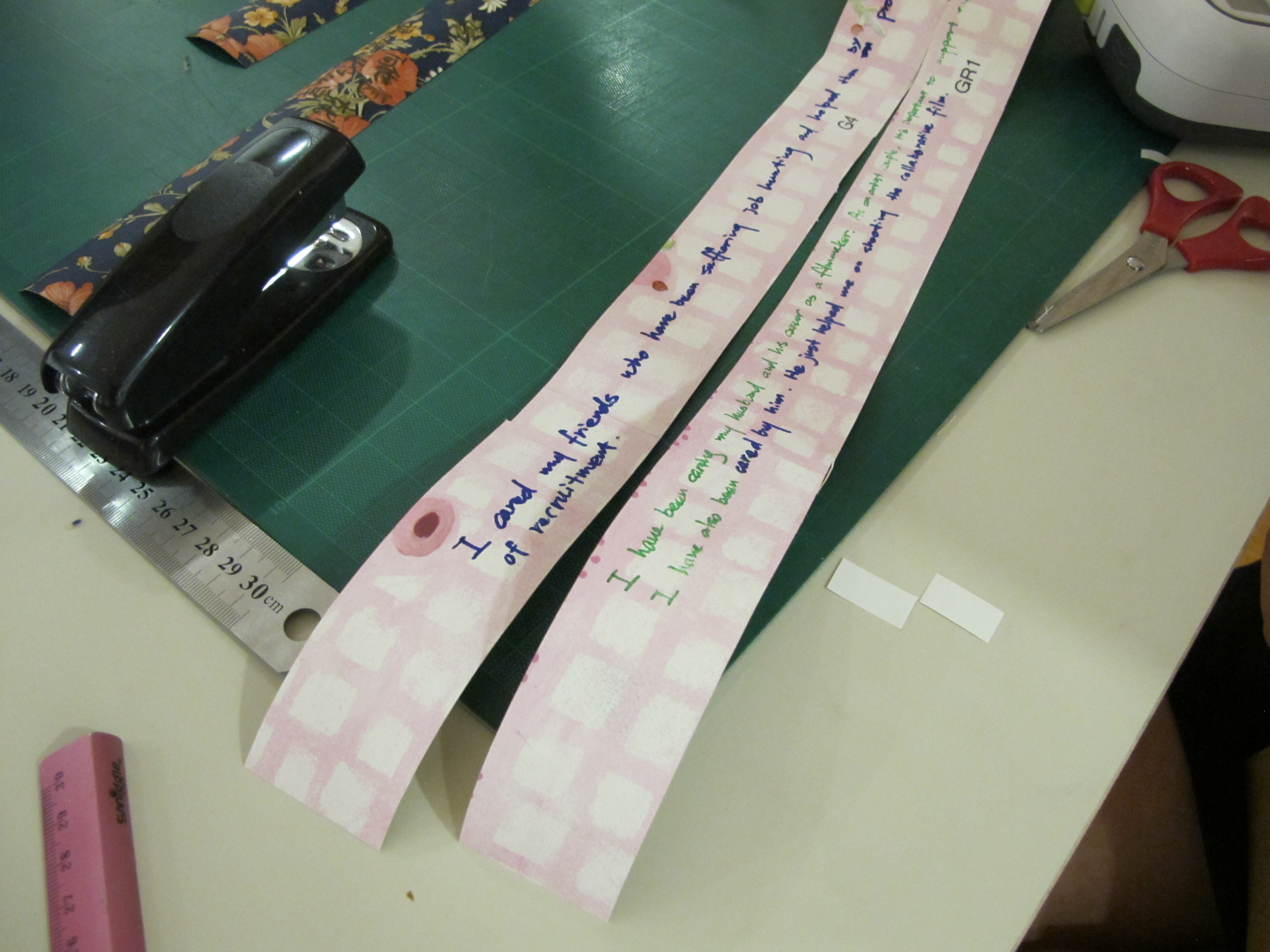
Jodie Goldring: Collaborative Nourishment; weaving objects and stories
Collaborative Nourishment - People come together to make art in a process of care; to listen, allow, connect and respond… Caring for each other - The art world can be a competitive and elite cultural environment that fosters individuality to the detriment of community. Let’s spend time weaving objects and stories with each other. The Artist comes out of her studio and shares skills to help people create as a collaborative group. Caring for the environment - Committed to using recycled and/or natural materials in a time of climate emergency. Work that is aligned with other caring activities such as permaculture, gardening and community art made in outdoor environments. Let’s put pressure on governments to come up with real solutions to our waste management crisis.
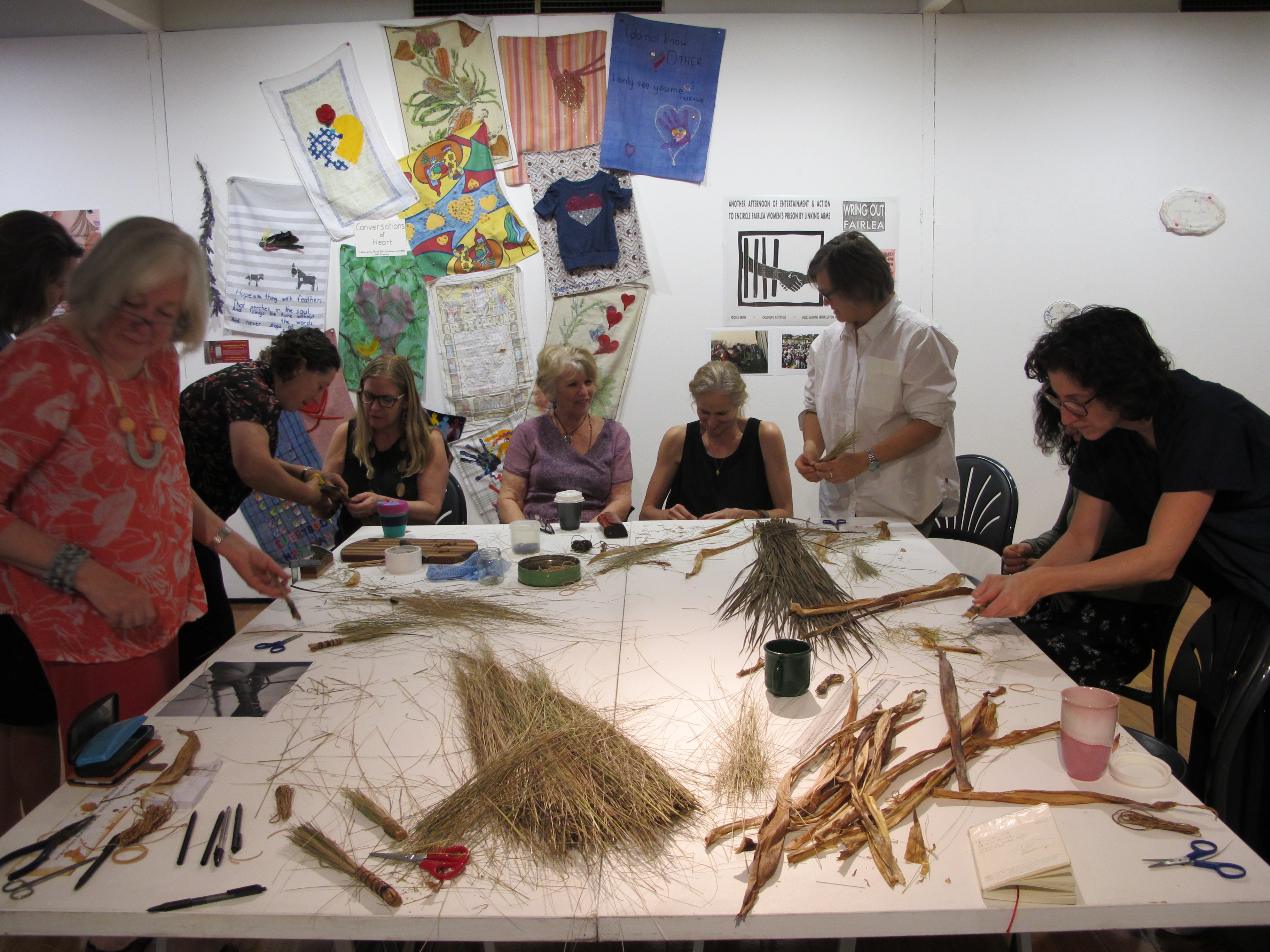
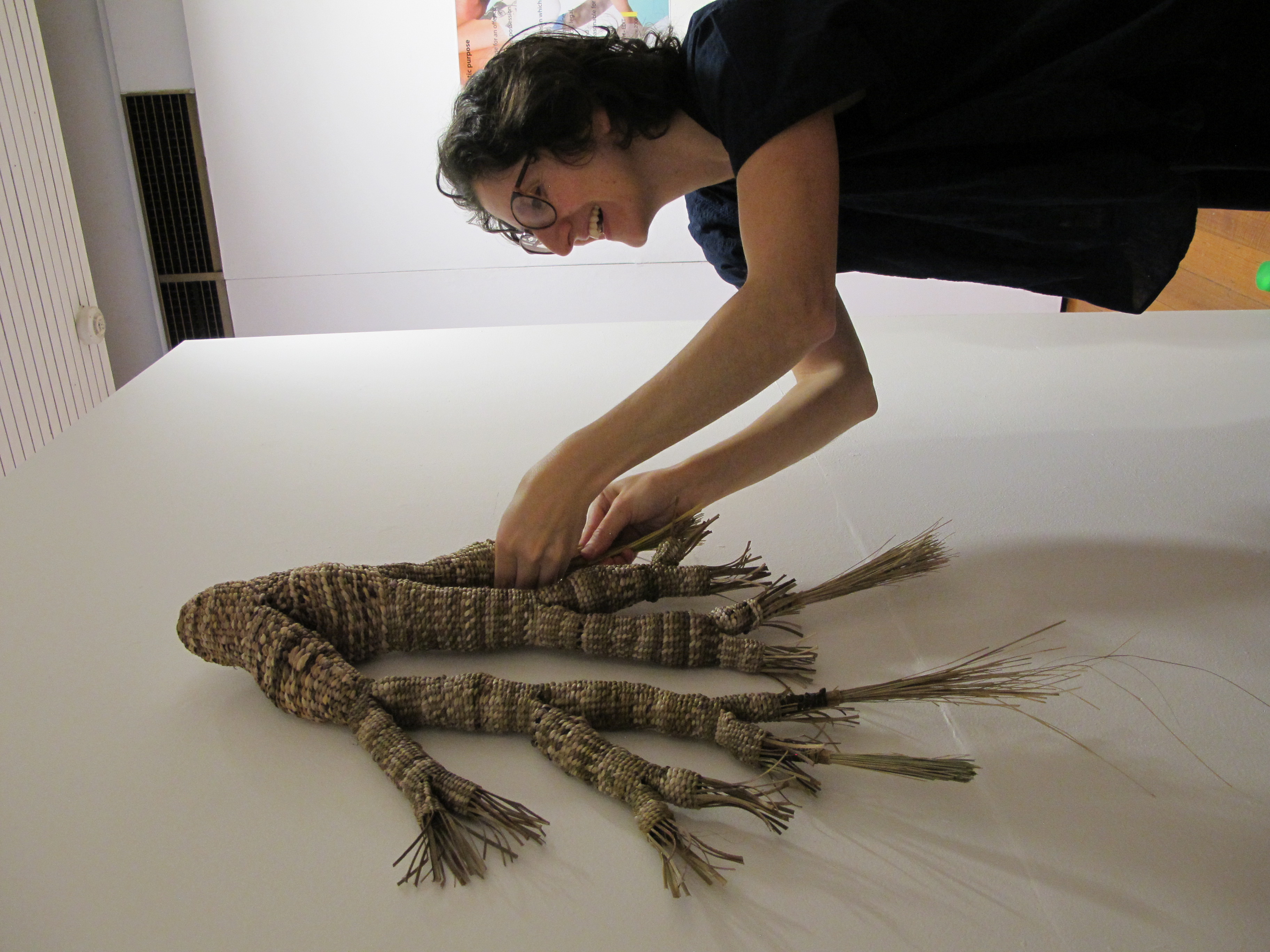
Illimine Collective (Majella Thomas and Michael Angelucci): O Had I known that thus it happens
This performance thematises our 15 year-long relationship and uses reciprocal tattooing to construct literal events in which body inscription, pain and care for the other are exhibited. Using extended duration, reiteration and a slow pace, it suspends and exhausts symbolic or conceptual meanings leaving only the gesture and the practice. The reciprocal transformation, the appearance of ‘lines’ on the body, the scarring – inherent to long relationships – is enacted literally, thus eliciting deeper engagement and creating a space of contemplation shared by artists and audience. O had I known that thus it happens is a first test of this work, a performative exploration of care as practice. We will introduce the performance with a brief contextualisation of our work, practice and research.
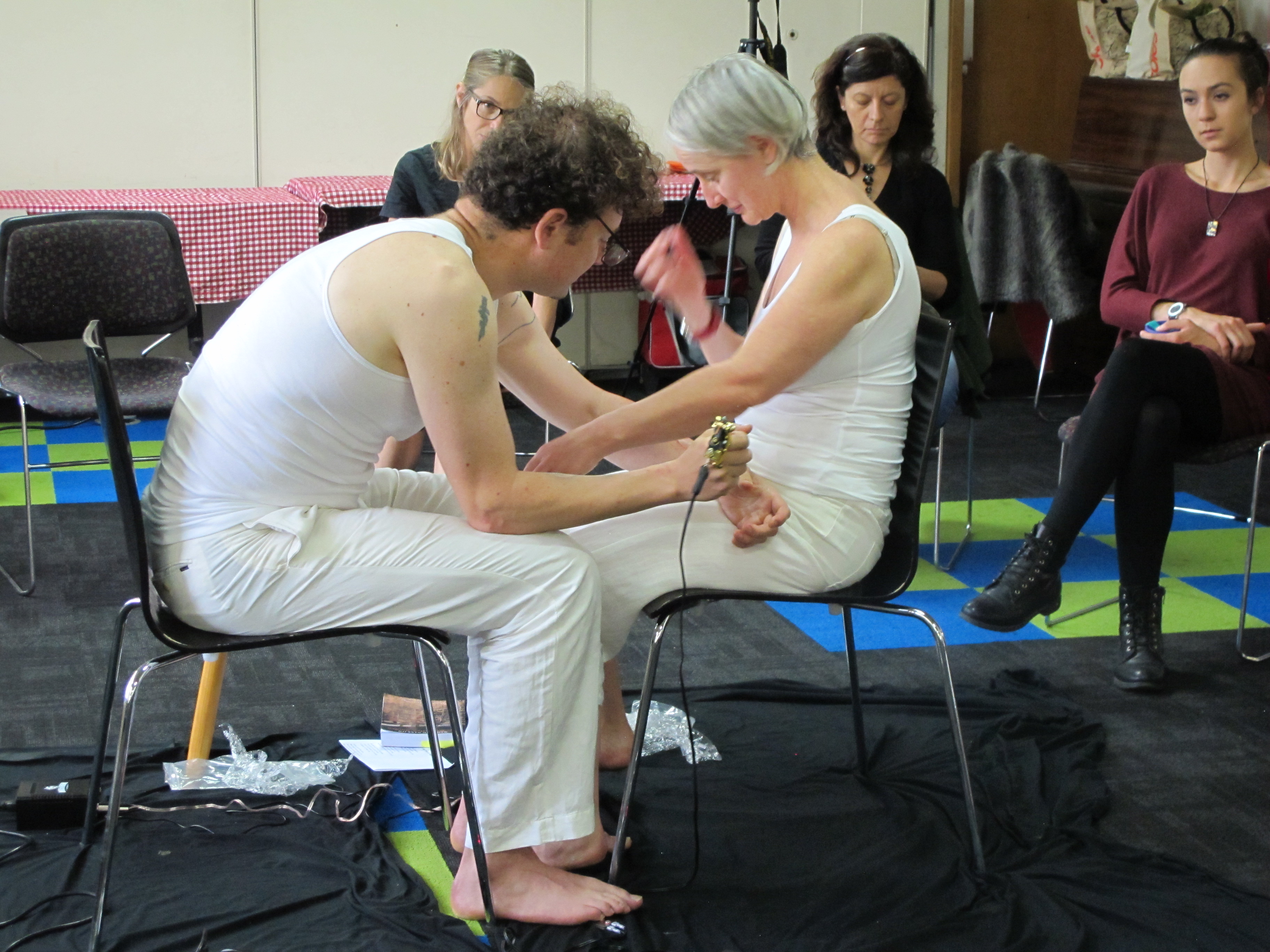
Visit the Care Network Youtube Channel for video footage of this performance via this link
Nancy Mauro-Flude and Kate Geck: Loric Signalling: Caring about contiguous spectrum and the non-existent horizon
Our world is increasingly designed to support technological ubiquity across a spectrum of digitally-augmented interactions in space - a paradigm essential for what is often dubbed as ‘Internet of Things (IOT). It is becoming evident that prevalent, dualistic assumptions around the entanglements of networks and humans do not afford care, nor the complexity required to articulate these potentialities. Angela Davis (2008) suggests that “Radical simply means grasping things at the root”. There we propose to realign our grip on the technological infrastructures that prod us in order to develop and consider new models of nonhuman/human/computer understandings that afford care and attentiveness; that exist beyond supplements to luxury. Since stakeholder automation affects the kinds of infrastructures we are exposed to daily, it is suggested that our patterned inertia (displayed in our behaviour and projections onto certain materials and artificial life forms) is potentially limiting contemporary AI and eventually will also do the same for human beings. We reach out and align ourselves with the wayward temperament of Isabelle Eberhardt who claimed “There are limits to every domain and laws to govern every organised power. But the vagrant owns the whole vast earth that ends only at the non-existent horizon…” (2001, 34) and draw up on Simonsen’s (2019) notion of Atmospheric Practices in order to reconsider the Contiguous Spectrum and our somatic relationship in the age of automation. In doing so we propose a model "A Taxonomy for Contiguous Spectrum" (fig 1.), in order to gain agency over our (neo)materiality and suggest entangled purposes; rather than deterministic design based on expedience.
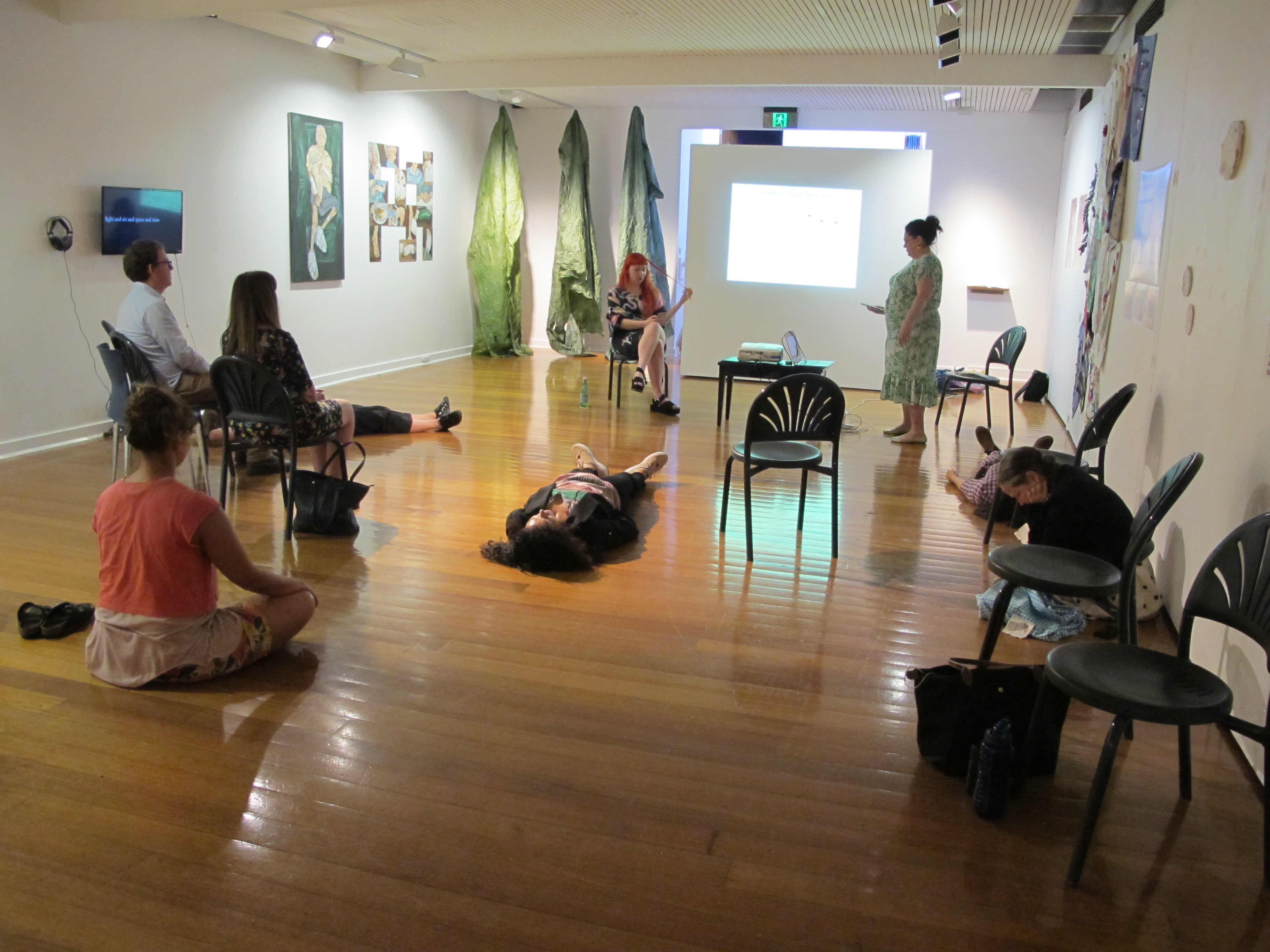
Katharine McKinnon: Creating Community Economies of Care
Led by Katharine McKinnon, with input from the Community Economies Collective. (www.communityeconomies.org)
This interactive workshop draws on the methods of community economies scholarship and activism to explore alternative representations of economic life that place care at the foundations. The workshop introduces tools used in action research and community engagement projects being undertaken by members of the global Community Economies Research Network, underway in all kinds of places and contexts from the Pacific, to Colombia, to Finland. The workshop utilises these tools to make visible the relations of care required by economic life and to position ourselves in a more-than-capitalist economy. It begins with the collaborative creation of a ‘diverse economies iceberg’, a visual representation of the diverse forms of economic practices that sustain individuals, households, communities and our other planetary companions. Based on the ‘iceberg’ participants then map the forms of community-making and practices of care embedded in livelihoods.
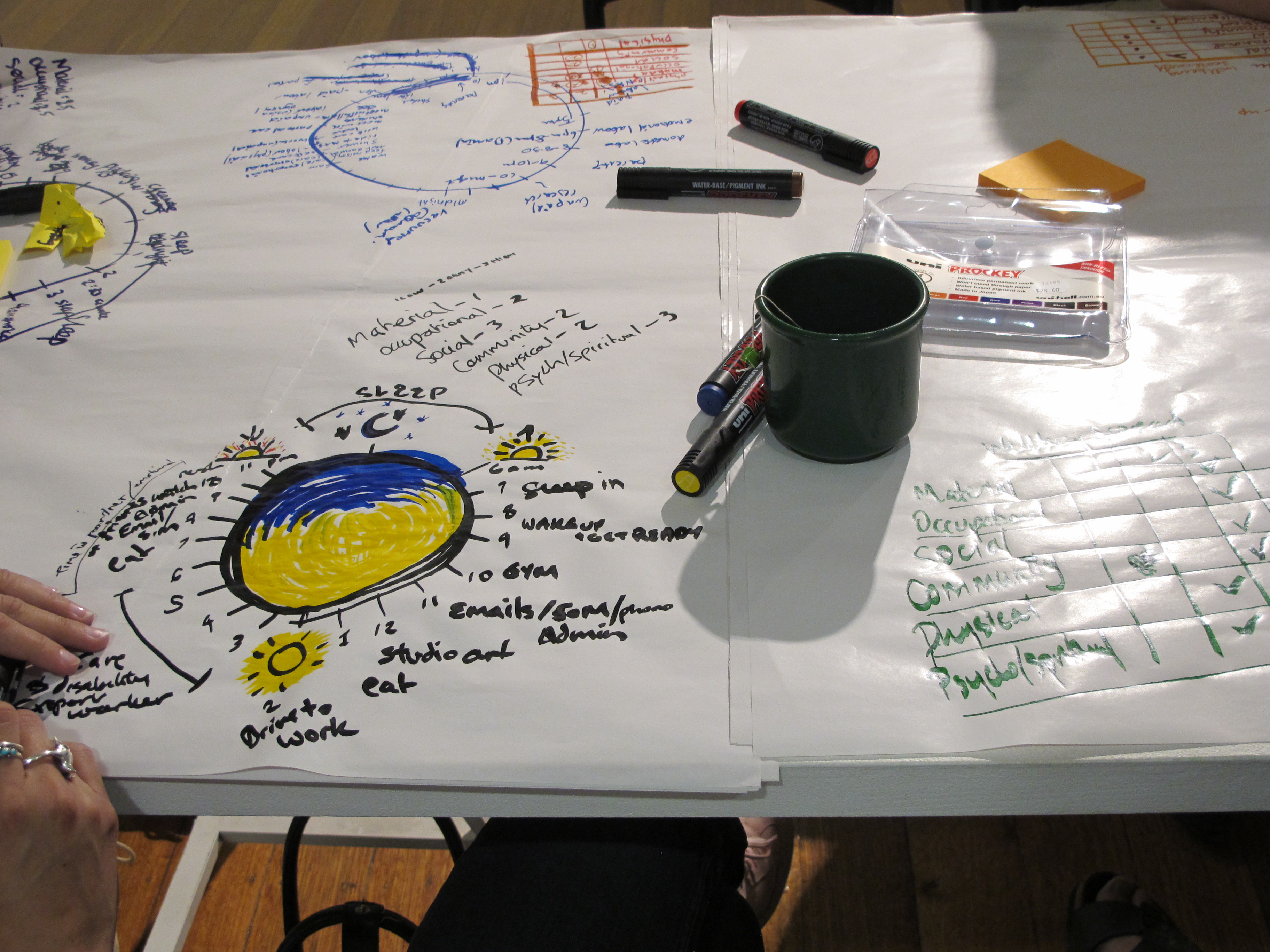
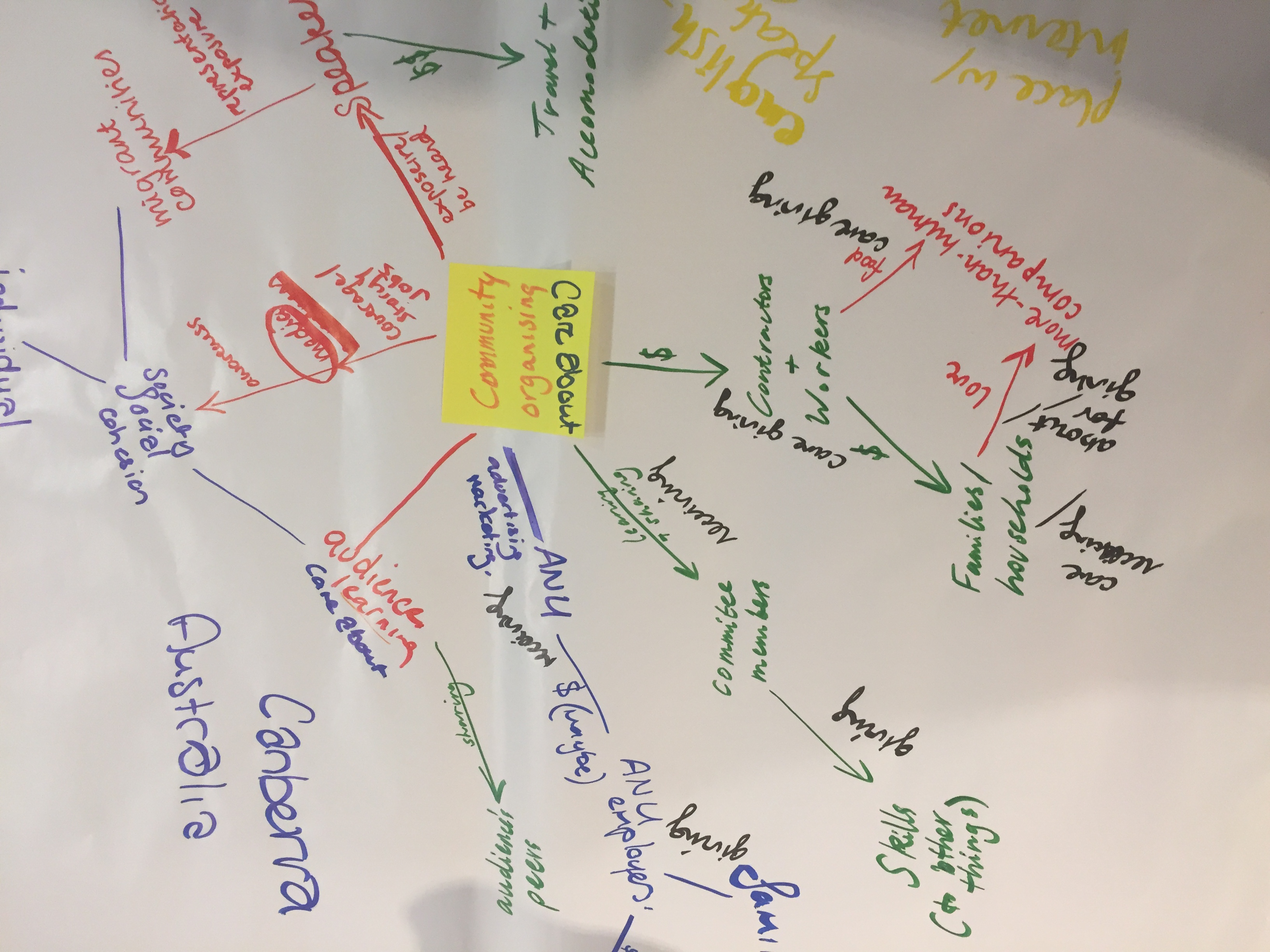
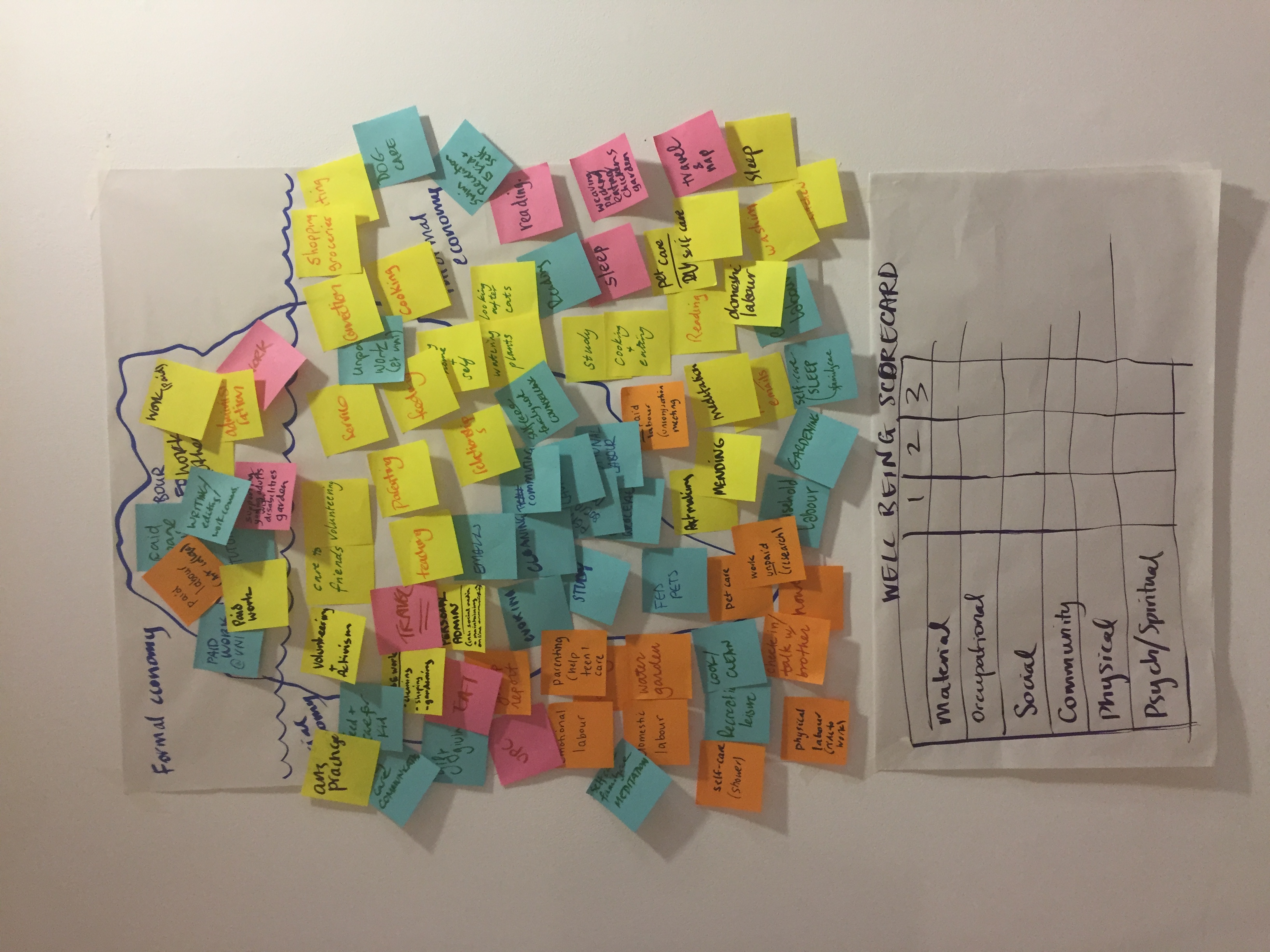
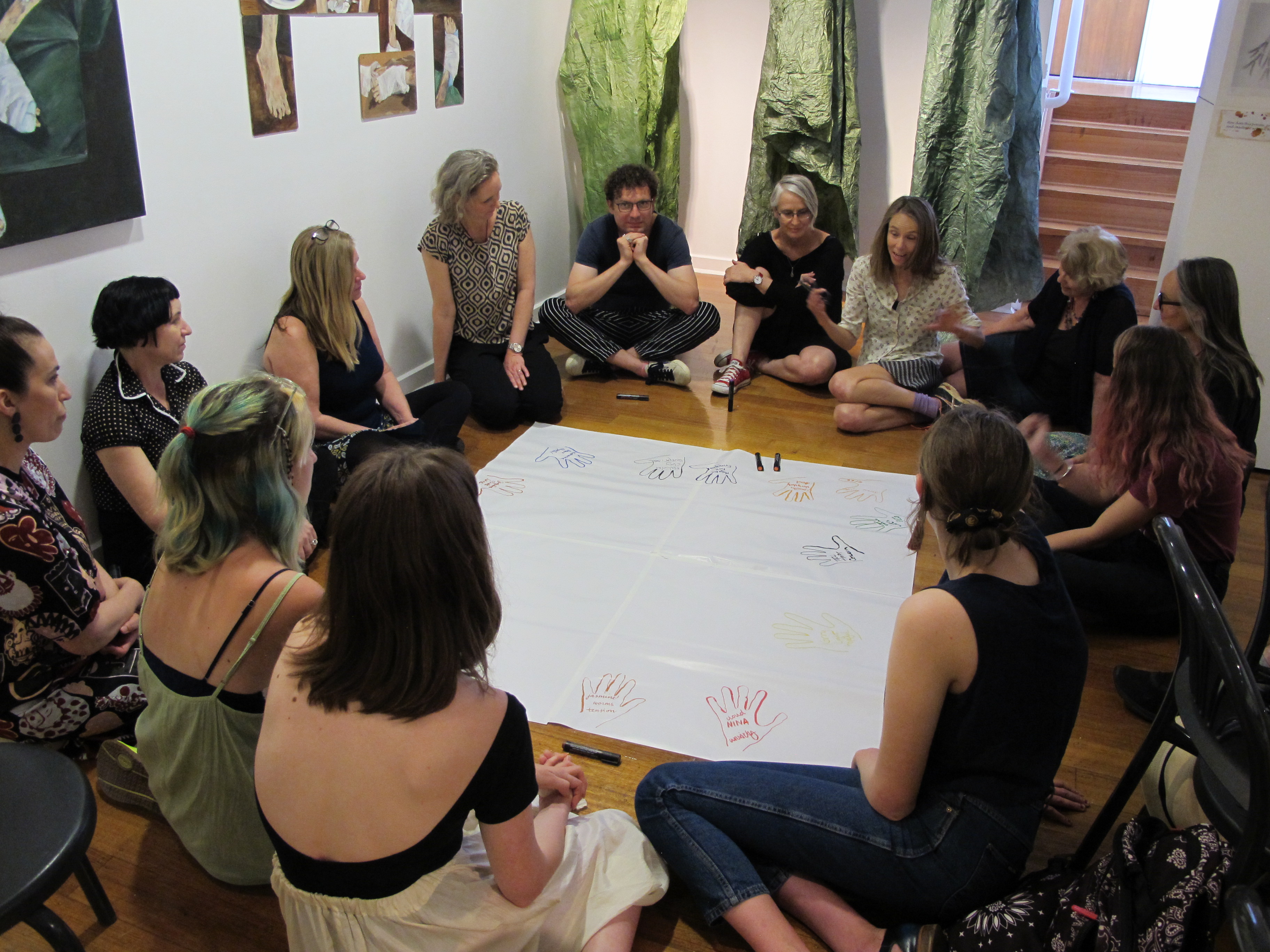
Kate Mullen: Contours of Contemplation: carving out space for and through deep listening
Within a climate of increasing ecological and socio-political instability, this workshop considers how the simple practice of ‘deep listening’ may support our bodies to adapt to and integrate disruption and change. The session then explores several practical methods of accessing and embodying the heightened states of stillness and awareness that deep listening invites, such as engaging intuitive mark making.
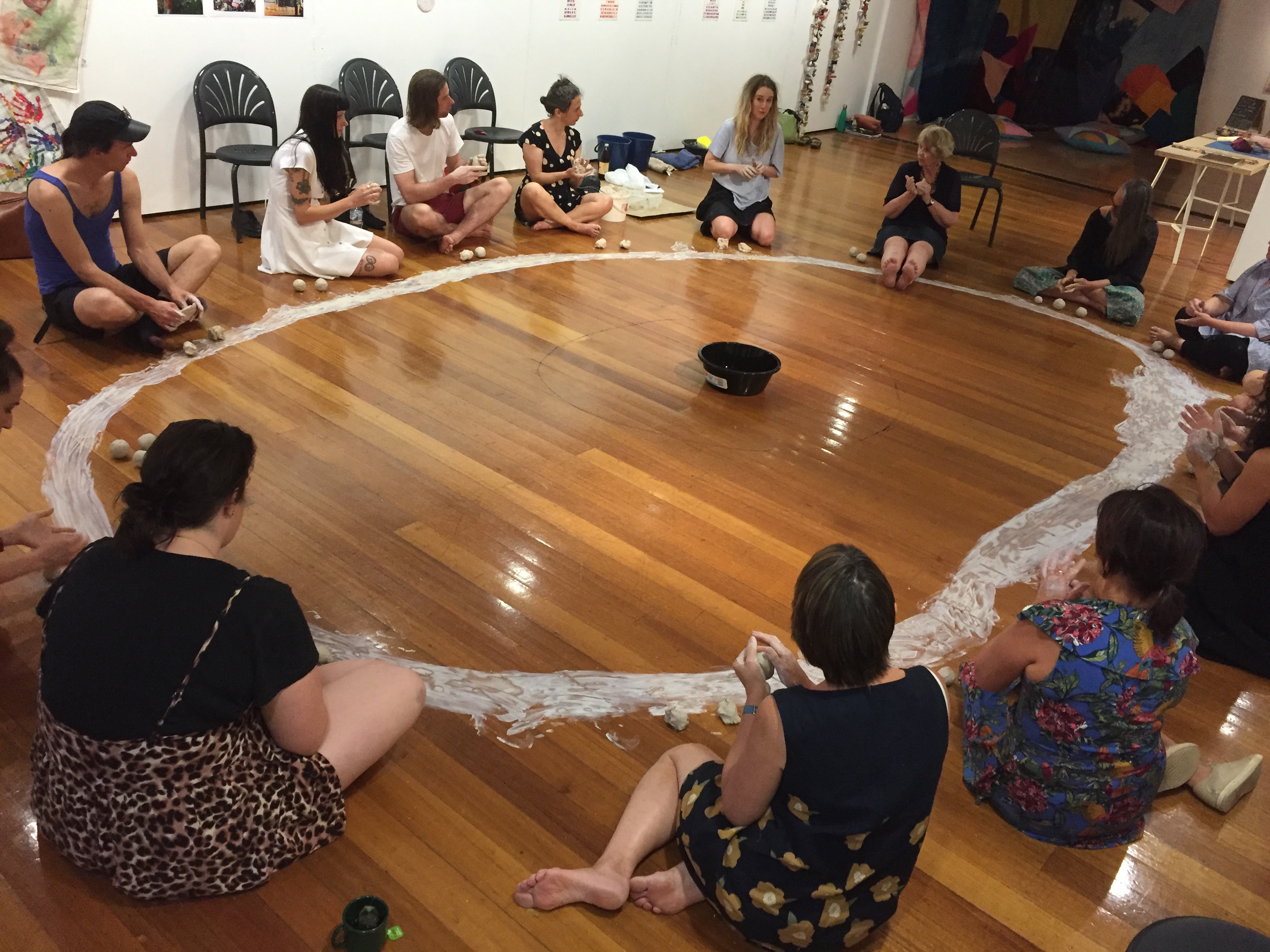
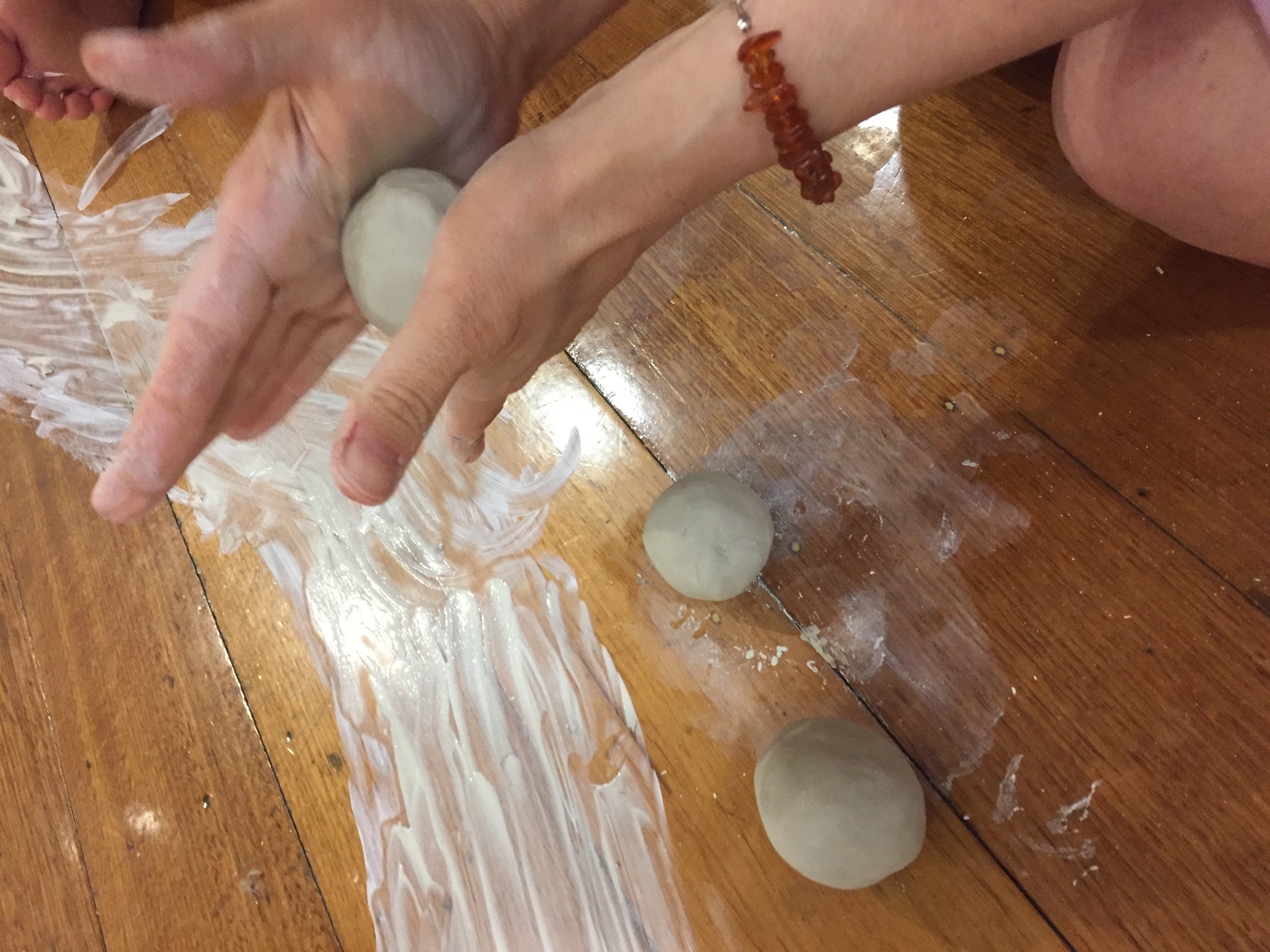
Cathy Parry: The Pink Shadow
A series of short exchanges undertaken with visitors to the symposium for the purpose of spreading much needed superpowers. The Pink Shadow is an entity with the capability of giving superpowers to others. The process is mysterious, allowing participants to freely choose a power to help them create change in themselves or give them the power to create change in a system that has its doors closed. The powers themselves are passed on through tokens in a 2.5- minute exchange. Previous exchanges can be seen at the artists website.

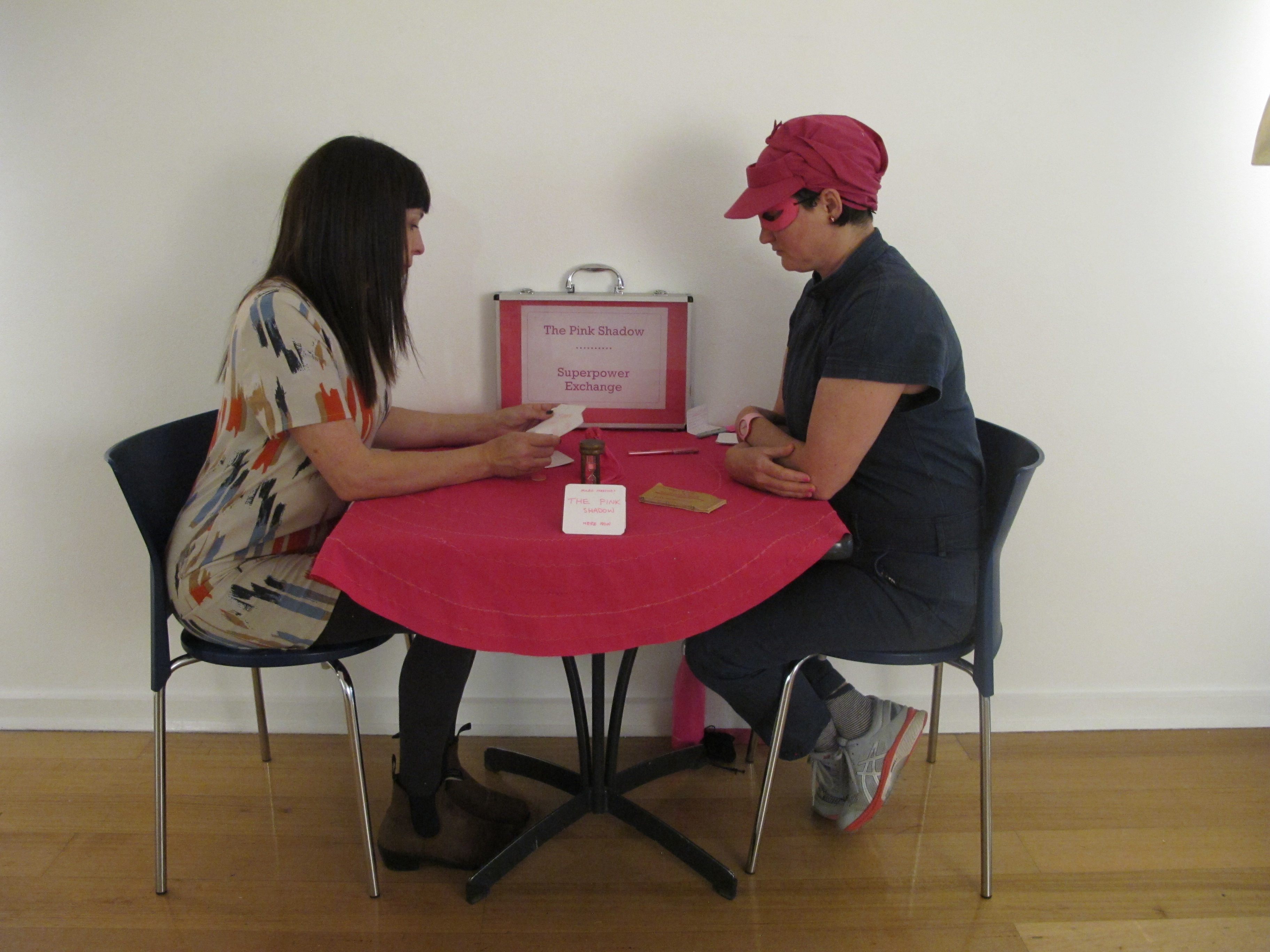
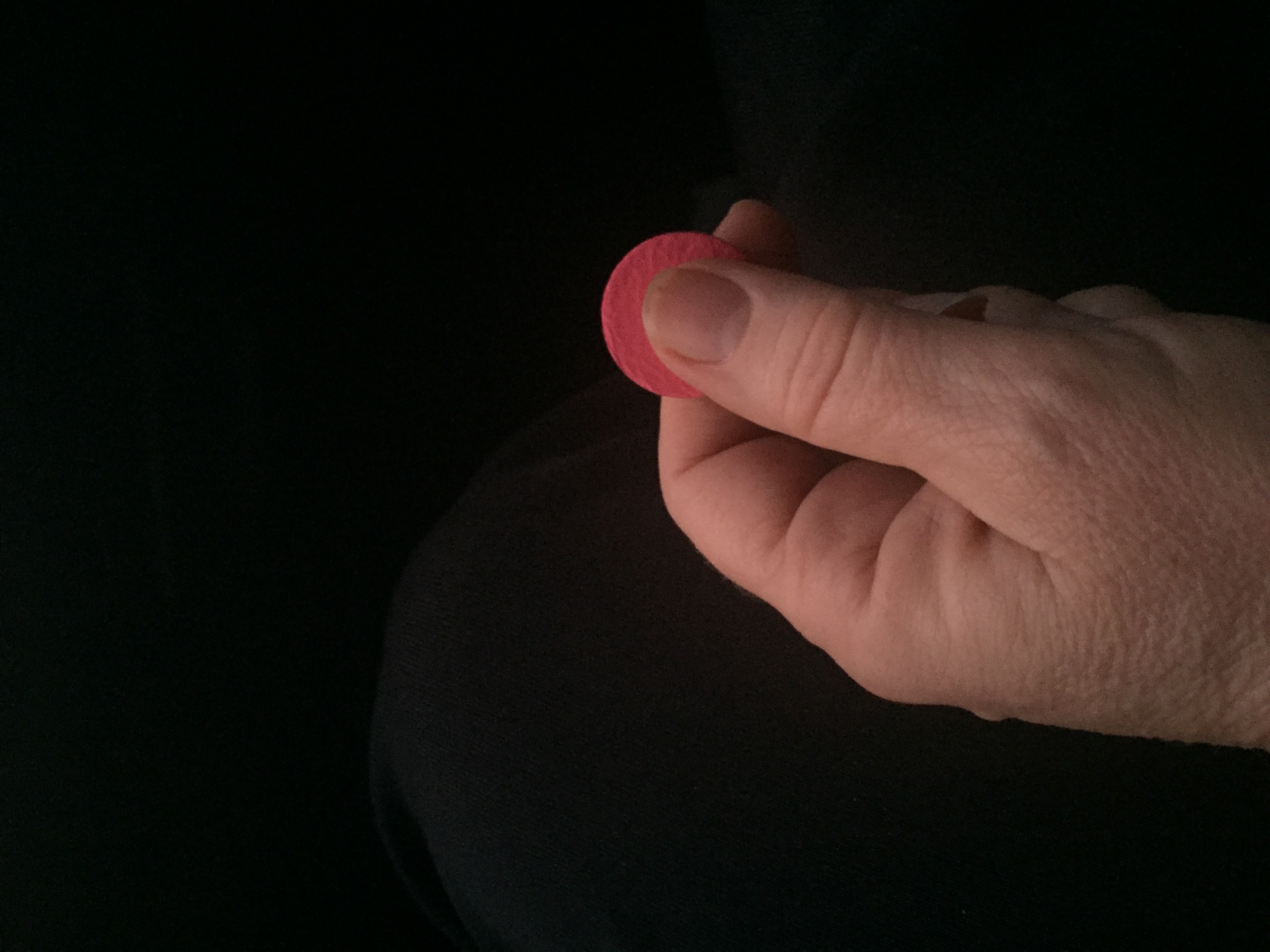
Katrina Rank and Fine Lines: Dance Performances - The Right & Birdwatching
The original Rite of Spring was first performed by the Ballet Russes in Paris in 1913. Avantgarde in every respect from Stravinsky’s score to Nijinsky’s choreography, it caused a riot. Just prior to World War 1, anti-Russian sentiment had reached a new peak, and this fueled the flames for the mayhem. The Rite was a serious work about sacrifice for the greater good. Our Right explores sacrifice through the lens of contemporary politics. What does it take to follow your convictions and make change? Must you change who you are? Must you play the game? Are there any alternatives to the present mechanism of politics and its games, strategies and tactics? Inspired by current trends towards personality politics, leadership takeovers and endless spin, The Right is a rollercoaster ride to be experienced close up.
The Right is presented by Fine Lines, an inter-generational mature dance collective that seeks visibility, representation and parity for dancers who resist mainstream expectations. We fight discriminatory, oppressive and pervasive attitudes towards women as they age in general, and women in dance in particular. Fine Lines seeks to create an alternative aesthetic in dance where older performers are part of our cultural conversation. In an ageist society that hungers for youthful bodies and virtuosity, this is particularly important. Sylph, swan, ghostly lover.
Blue bird, old bird, bower bird. Birdwatching is a work about the space between the observer and the observed, between moments of observation, of judging and noticing. It is influenced by a history of bird ballets etched a thousand times into this woman's flesh. Birdwatching defies ageist stereotypes and reclaims ownership of these etched lines and stories, layering this with a thousand reclaimed white plastic bags to create a feathered costume which is plucked by the audience on completion of the dance.
Visit the Care Network Youtube Channel for video footage of Katrina Rank's Birdwatching performance, via this link.
Elizabeth Savage Kooronya: presentation on the work ‘Conversations of Heart’
‘Conversations of Heart’ follows the previous ‘Conversations of Soul’ which came out of the Black Saturday Bushfires. Three affected women, through their artwork, showed personal stories, and remarkably, hope. It was held in the tiny historic church building in St Andrews. Importantly, this first exhibition informed visitors about the profound pain of loss of loved ones; the trauma of losing homes, personal histories and sense of self. Some of the artworks explored effects of fear and anger as well as acknowledging collective trauma and the vast environmental loss. The second exhibition ‘Conversations of Heart’ is again mainly an exhibition of women’s art and voice - used tea-towels are the canvases. The catalyst for the teatowel project has come about because of growing concern about what seems to be suspicions and mistruths demonising and ‘othering’ people who are not ‘us’ or ‘like me’. Meaning we, as individuals, as a society and as a nation can legitimise our treatment of people who experience disadvantage, difference (from what we perceive as the ‘norm’), and who we fear (without evidence) as ‘other’. To be ‘Other’ is to be less than 'me' or ‘us’. It occurs at many levels and can be unrecognised or deliberate. The Conversations of Heart exhibition also includes statements about care for environment and planet. Elizabeth spoke about this work, the community of participants, and their experience.
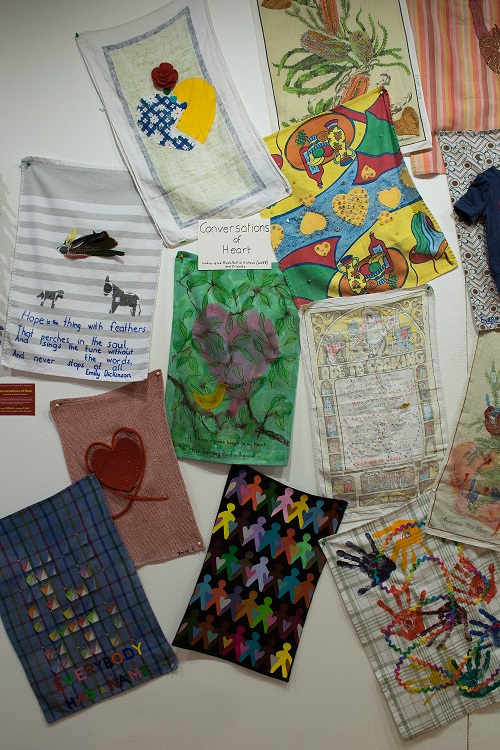
Kerryn Sylvia: WE WAIT....What else can we do? wearable object performance
Over the past few years I have been collecting wooden knots from trees. l have been ritualistically casting these objects, making multiples and growing them in numbers like precious gifts, ritualistic objects in creation and form. There are memories of walks and conversations embedded in each one as a record of experiences shared from mother to daughter to mother. The wearing of the objects activates their presence as ritualistic objects of enchantment, through which I explore the liminal spaces and rites of passage, in the experience of motherhood of my adolescent children. In her book The Mother Knot Jane Lazarre writes: “The only thing which seems to me to be eternal and natural in motherhood is ambivalence and its manifestation in the ever-ongoing cycles of separation and unification with our children.” As a mother, I believe these people are only with me for a short time, that l have no hold over them and my fundamental role in their lives is support them as independent individuals. My care is at arm’s length, my care is through my work, my care is in modelling life as something that should fulfil and sustain you, my care is both a burden and a uniting force. The weight around the neck is like a burden carried but also functions as a gift, the gift of them and of the humility and patience that motherhood brings.
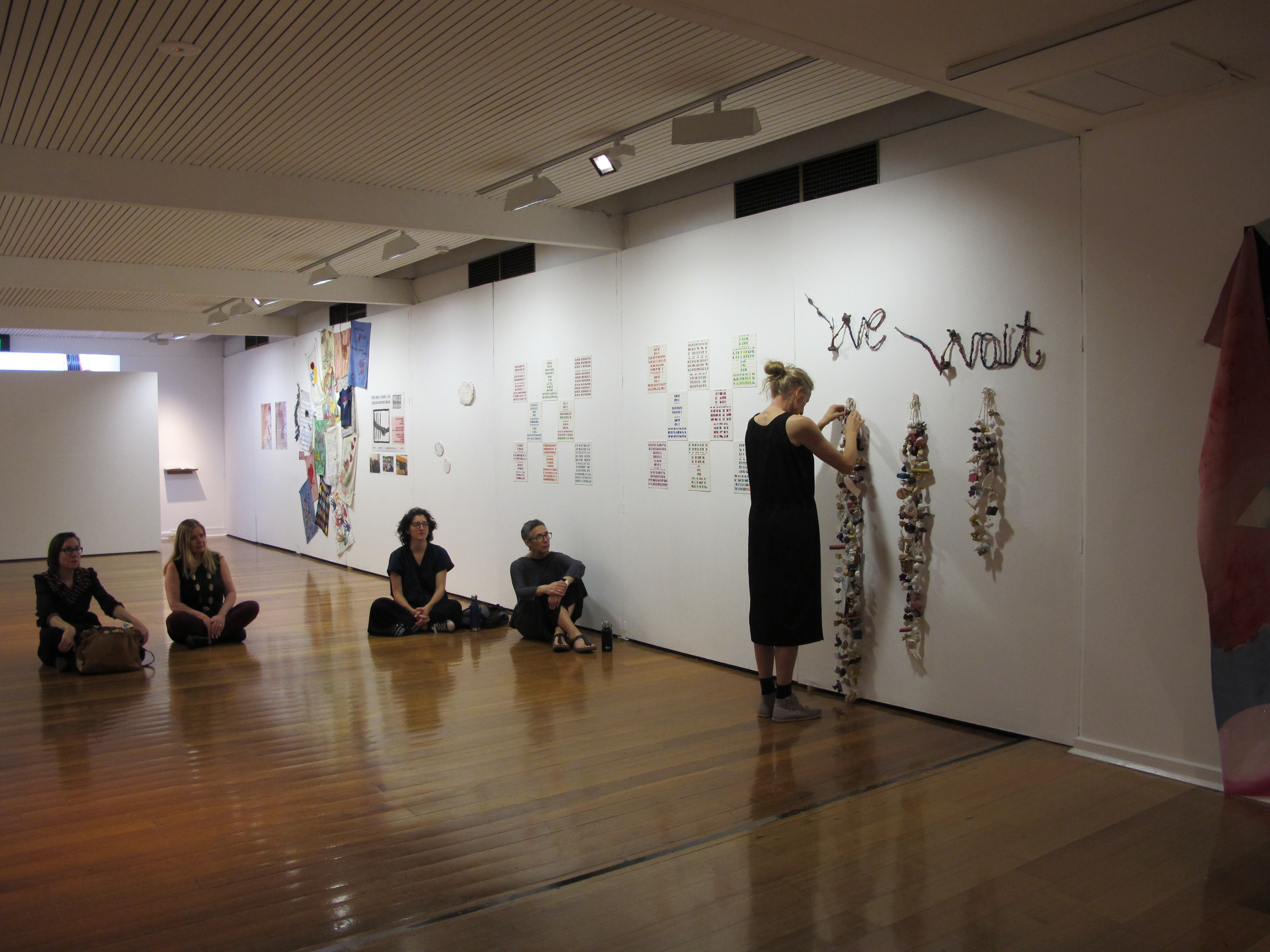
Visit the Care Network Youtube Channel for video footage of this performance via this link.
Jude Walton & Alice Cummins: Dancing Matters - A 30 minute dance performance in two parts
Jude Walton and Alice Cummins present an experimental and experiential presentation of an ephemeral, transient event around improvisation and spontaneous choreography and composition. It involves the development of a collaborative process that is shared and understood including: how changes and interventions influence the interactions between people; how the flux and flow of energy in the space is altered by the choices that are made; how solos, duets shift from one to the other; how time can be manipulated, and ideas given form in the moment of performance. It poses questions about the temporality, narratives, politics and process of creating live performance in relation to an audience. It provides a chance to explore a new way of working together and sharing our ‘know-what and know-how’ of bodies and physical practice. Improvisation is a leap of trust with failure always a possibility. It relies on a bodymind intelligence, which is the accumulated skill of the performer in dynamic relationship with the unknown, in the act of creating. It’s an instance of life and an embodiment of what Elizabeth Grosz believes Henri Bergson was suggesting: “… life is a response, a reply, to the problem of how to live in a material world and to use its resources to maximize itself” (Elizabeth Grosz, 2004: 211-212).
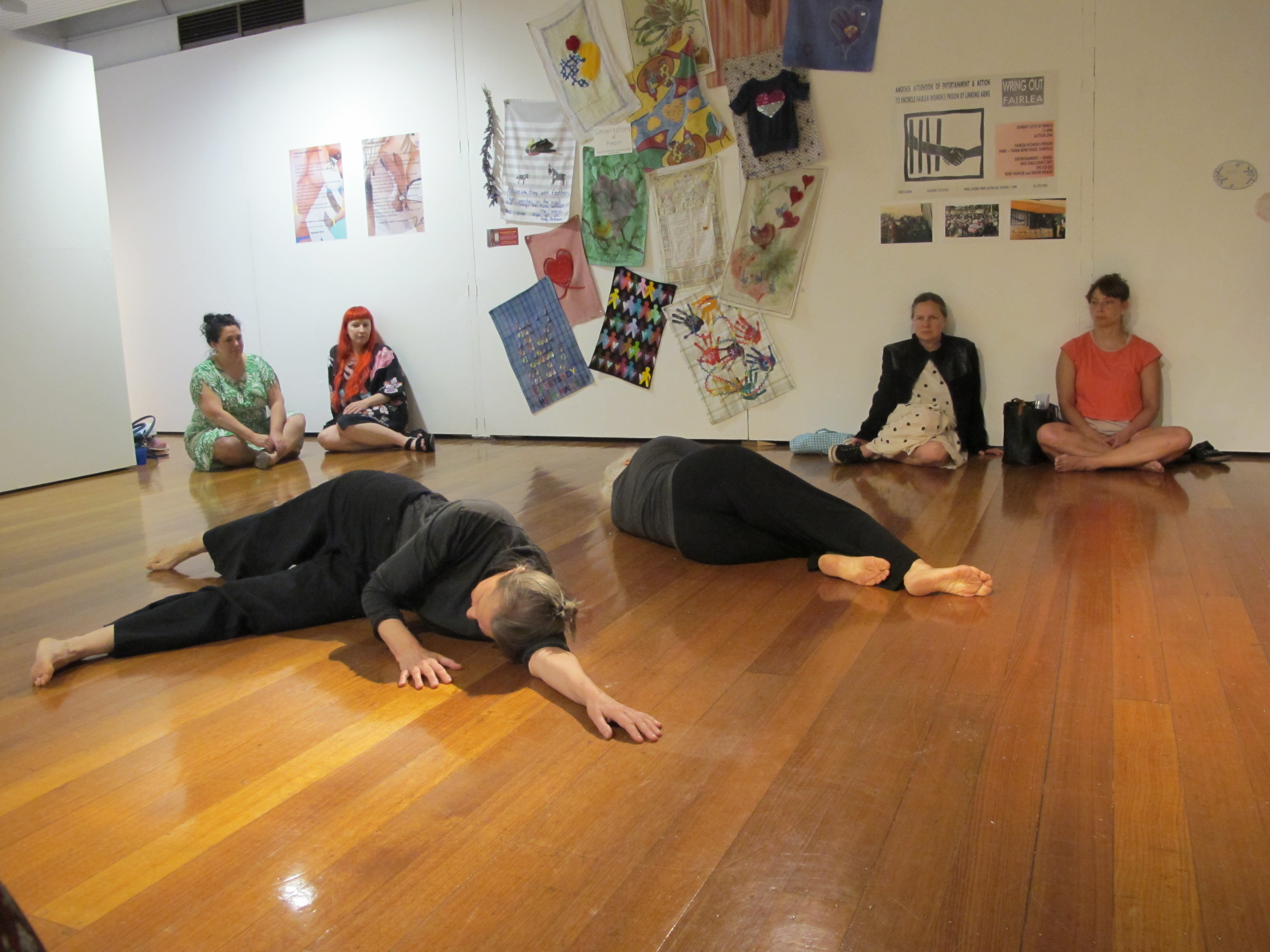
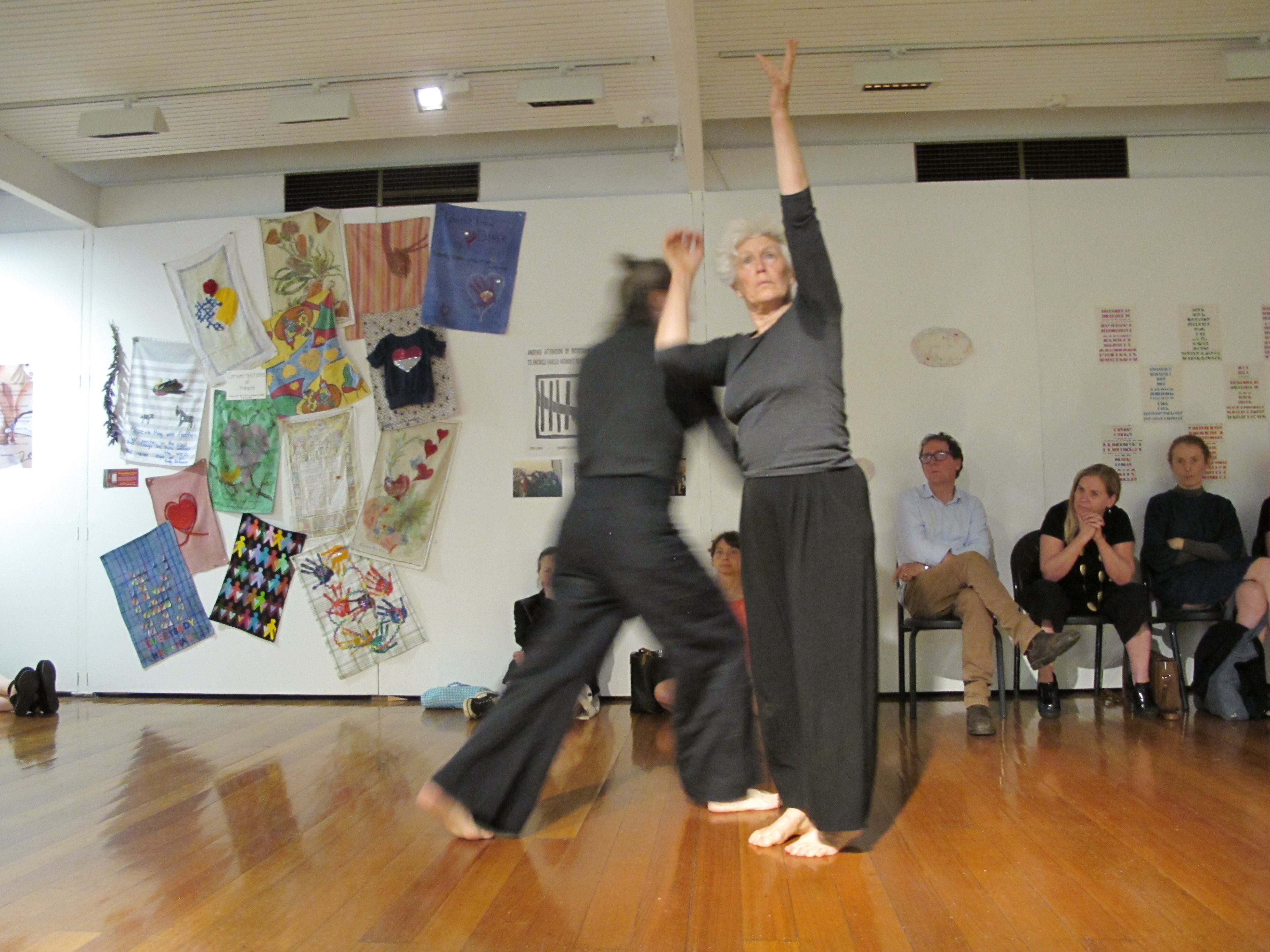
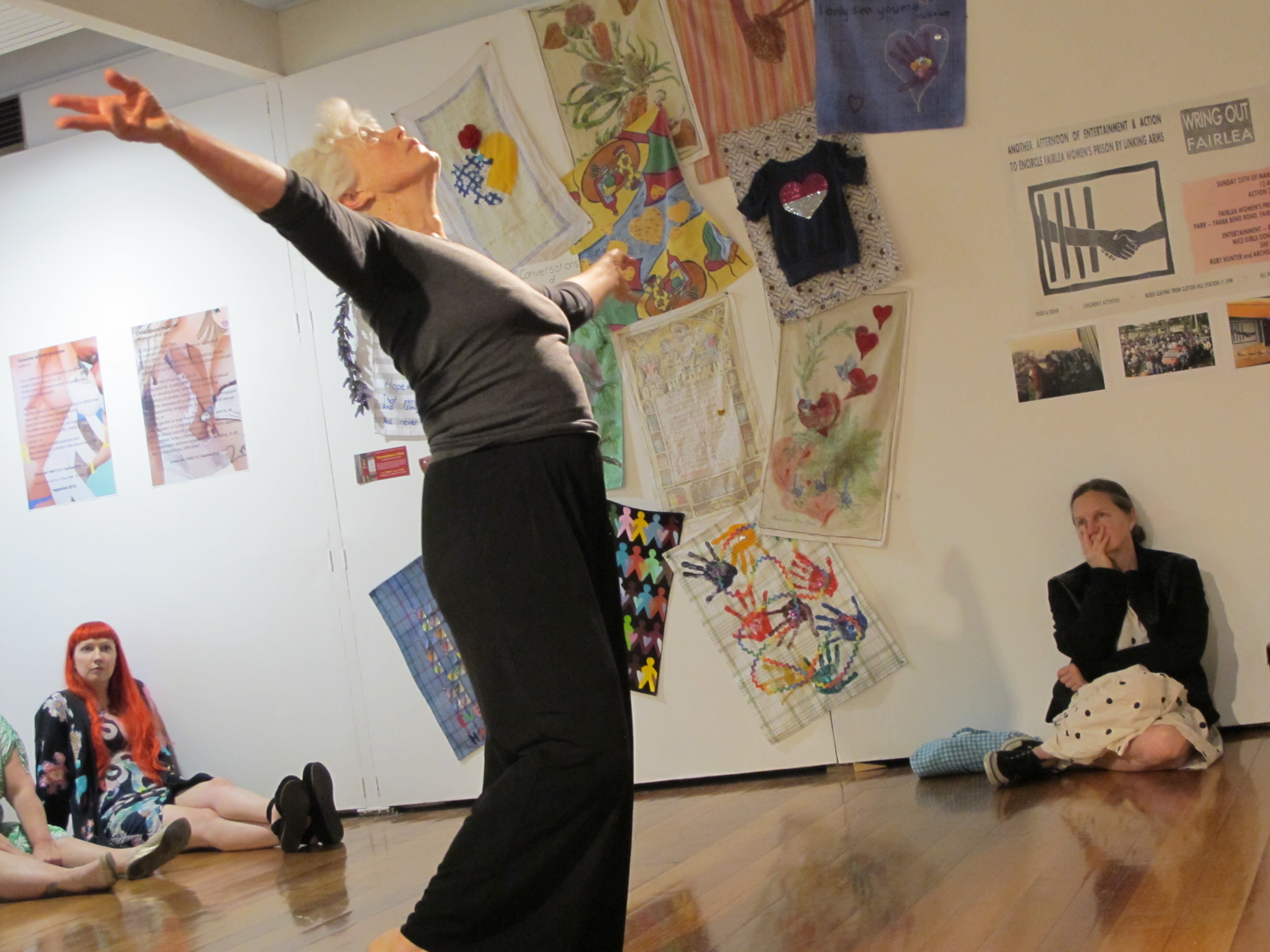
Sonia Zymantas: The Other List
The Other List is an interactive, process-driven visual art workshop and installation made up of multiple coloured flags. Drawing on women’s conversations and inspired by Women's March protest banners, the flags form a collective narrative that act as protest symbols to examine the casualisation of gendered language. Drawing on women’s daily conversations, The Other List examines the casualisation of gendered language through a series of participatory, processdriven, art workshops and installation. In light of the #MeToo movement, the installation is the result of a year-long project, involving a series of workshops and consultations that started on International Women’s Day including; a workshop in Victoria Square Project, Greece; No Vacancy Gallery, RMIT Melbourne; Knox Immerse arts festival in September; and One Night In Footscray, Melbourne. The flags are a form of social and political commentary, inspired by protest banners at the Women’s March as documented by individuals online.


